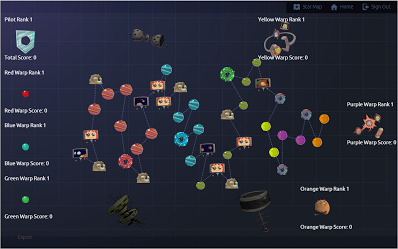CFP Special Issue On: SURGE, Physics Games, and the Role of Design
CFP Special Issue On: SURGE, Physics Games, and the Role of Design
Submission Due Date
5/15/2017
Guest Editors
Douglas Clark, Vanderbilt University, Nashville, TN, USA
Introduction
The purpose of this special issue is to investigate the role of design in the efficacy of physics games in terms of what is learned, by whom, and how. Importantly, studies should move beyond basic media comparisons (e.g., game versus non-game) to instead focus on the role of design and specifics about players’ learning processes. Thus, invoking the terminology proposed by Richard Mayer (2011), the focus should be on value-added and cognitive consequences approaches rather than media comparison approaches. Note that a broad range of research methodologies including a full gamut of qualitative, ethnographic, and microgenetic methodologies are encouraged as well as quantitative and data-mining perspectives. Furthermore, the focal outcomes and design qualities analyzed can span the range of functional, emotional, transformational, and social value elements outlined by Almquist, Senior, and Bloch (2016).
Recommended Topics
Authors are invited to submit manuscripts that
- Focus on the role of design beyond simple medium (i.e., move beyond simple of tests of whether physics games can support learning to instead focus on how the design of the game, learning environment, and social setting influence what is learned, by whom, and how).
- Explore learning in games from the SURGE constellation of physics games and other physics games using qualitative, mixed, design-based research, quantitative, data-mining, or other methodologies.
- Focus on formal, recreational, and/or informal learning settings.
- Focus on any combination of player, student, teacher, designer, and/or any of other participants.
- Answer specific questions such as:
- How do specific approaches to integrating learning constructs from educational psychology (e.g., work examples, signaling, self-explanation) impact the efficacy of these approaches within digital physics games for learning?
- How do elements of design impact the value experienced by players in terms of the elements of functional, emotional, transformational, and social value outlined by Almquist, Senior, and Bloch (2016)?
- What is the role of the teacher in interaction with students and the design of a game in terms of learning outcomes?
- How does game design interact with gender in terms of what is learned, by whom, and how?
- How can designers balance learning goals and game-play goals to best support a diverse range of players and learners?
- How do specific sets of design features interact with players’ learning processes and game-play goals?
Submission Procedure
Potential authors are encouraged to contact Douglas Clark (clark@vanderbilt.edu) to ask about the appropriateness of their topic.
Authors should submit their manuscripts to the submission system using the link at the bottom of the call (Please note authors will need to create a member profile in order to upload a manuscript.).
Manuscripts should be submitted in APA format.
They will typically be 5000-12000 words in length.
Full submission guidelines can be found at: http://www.igi-global.com/publish/contributor-resources/before-you-write/
All submissions and inquiries should be directed to the attention of:
Douglas Clark
Guest Editor
International Journal of Gaming and Computer-Mediated Simulations (IJGCMS)
Email: clark@vanderbilt.edu








